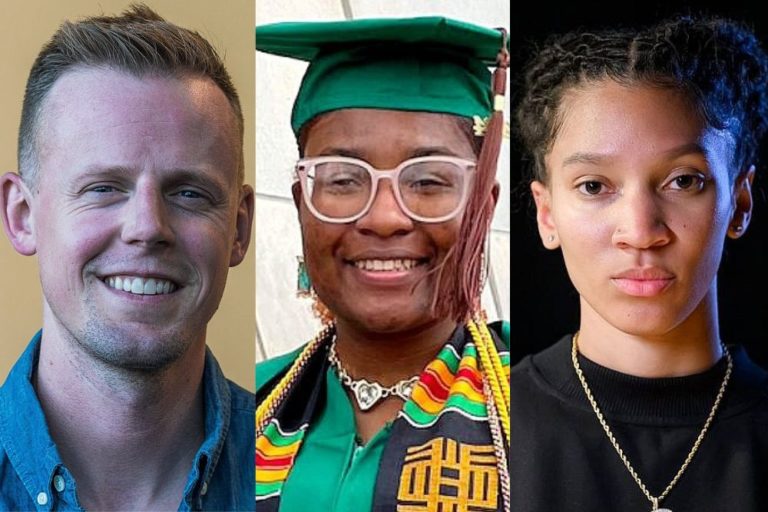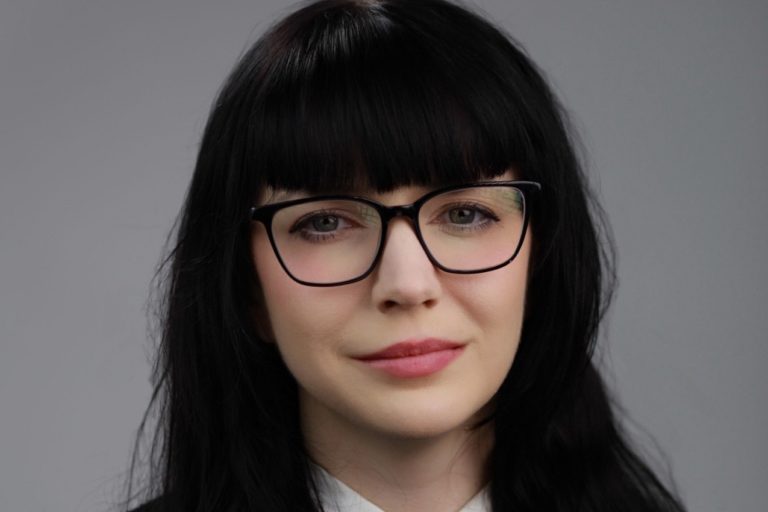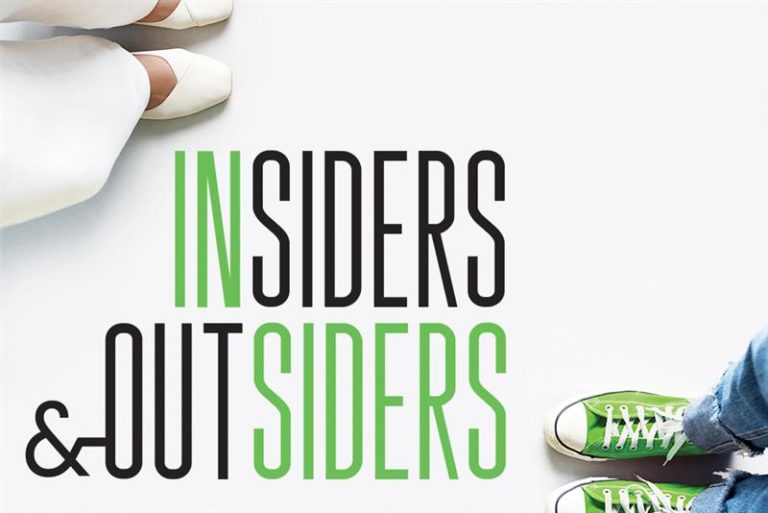Trixie Long Smith, Professor in the Department of Writing, Rhetoric, and Cultures at Michigan State University, is part of the second cohort of the Collaborative Online International Learning (COIL) Faculty Fellows Program-Africa and is partnering with a faculty member at the University of Pretoria in South Africa during the 2024-2025 academic year.
An online cross-cultural teaching and learning method, the COIL program links university courses, faculty, and students in different countries to offer a collaborative intercultural experience. As part of the program, faculty from different countries partner to design a class module. Students who enroll in this shared module work together across cultures to complete the activities created, thus offering a multicultural opportunity to learn, discuss, and collaborate.
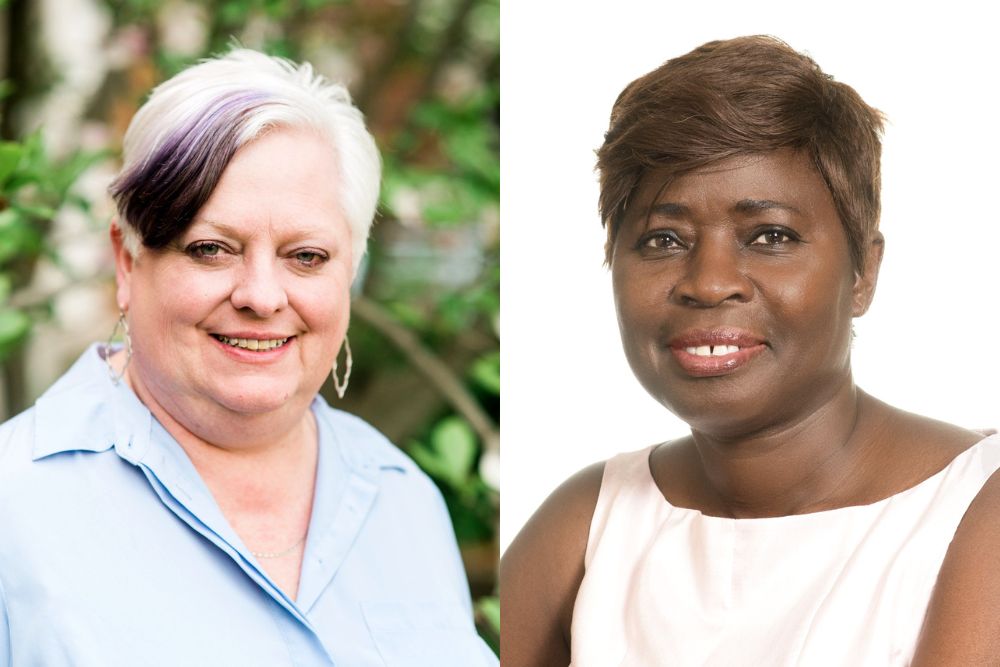
The COIL Faculty Fellows Program-Africa is operated by the Global Youth Advancement Network and Office for Education Abroad, through MSU’s new Center for Global Learning and Innovation in International Studies and Programs (ISP), in partnership with the Alliance for African Partnership (AAP). It aims to advance global learning through a combination of strategic partnerships, faculty instructional leadership, internationalization of the curriculum, and student success. The program provides faculty from any discipline the opportunity to explore the theory and practice of Collaborative Online International Learning (COIL) through global partnerships connecting AAP Consortium institutions to design and implement COILed projects together.
As part of this fellowship program, Smith is collaborating with Ruth Aluko, a researcher within the Distance Education Unit at the University of Pretoria who oversees the quality of the institution’s open distance learning programs, facilitates training and workshops, and is involved in the evaluation of open distance learning.
“I was fortunate to find a good fit with Dr. Ruth Aluko. We are both teaching graduate courses with enough overlap in thought and process to make a group project feasible.”
Dr. Trixie Long Smith
“Given my previous partnerships and collaborations with partners across the African continent, I was asked to potentially partner with someone from an AAP institution who was looking for a partner,” Smith said. “I was fortunate to find a good fit with Dr. Ruth Aluko. We are both teaching graduate courses with enough overlap in thought and process to make a group project feasible. We then applied together and were accepted.”
Smith and Aluko are partnering to offer their students the opportunity to engage in global learning by inviting them to not only consider existing philosophies of education and theoretical frameworks from both teaching and research, but to apply these various philosophies and theories to their own research and teaching practices.
During the Fall 2024 Semester, Smith and Aluko went through the COIL training and worked on their class materials. Now during the Spring 2025 Semester students in Smith’s Methods of Research in Rhetoric and Writing (WRA 870) graduate seminar and in Aluko’s Philosophy and Sociological Imperatives in Education graduate course will participate in the COIL project.
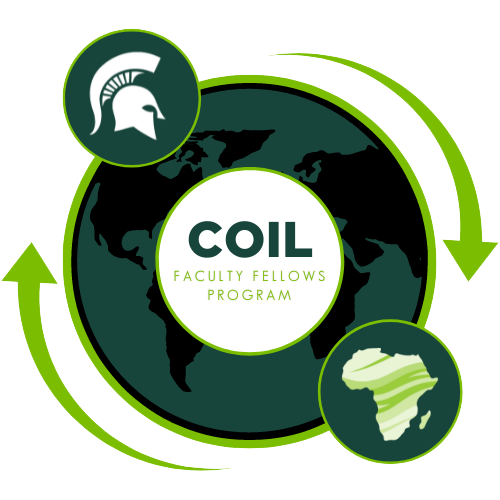
As part of this project, students in both classes will do some shared readings followed by shared discussions through an online forum and/or online in-time meetings. They also will write philosophy statements, either teaching or research focused, and will engage in a peer review of these documents.
The shared readings the students will be doing focus on indigenous philosophies that influence and/or guide both teaching and research with one set of readings focusing on southern African philosophies and another on North American indigenous philosophies.
“The students will benefit from discussing these articles and from the peer review that will provide various perspectives and insights,” Smith said.
Smith hopes the students gain new perspectives; a collegial, global experience; a new network for the future; and interests in global partnerships and collaborations.
“As I’m working with grad students who also teach, or who will teach, I hope they see COIL as a model they may want to use in their own classes down the road because it’s a great way to meet strategic goals related to global learning and global impact.”
Dr. Trixie Long Smith
“I also hope this experience will help them expand their understandings of teaching and researching globally,” she said. “I’m very excited about the possibilities for both our students. It has been great to meet and work with Ruth, and I look forward to other collaborations in the future.“
More than 40 faculty in total (from Michigan State University and African institutions affiliated with AAP) applied to be part of the second cohort of the COIL Faculty Fellows Program-Africa, with the selection committee choosing Smith as one of 14 faculty fellows (seven from MSU and seven from African institutions). Each fellow receives a $750 stipend to be used for professional and project development. Additionally, fellows receive extensive COIL training.
The COIL pedagogy was initially developed by faculty at the University of New York (SUNY) with support from SUNY System Administration’s Office of International Programs and the SUNY Learning Network.
“As I’m working with grad students who also teach, or who will teach, I hope they see COIL as a model they may want to use in their own classes down the road because it’s a great way to meet strategic goals related to global learning and global impact,” Smith said. “It’s also just a fun learning experience for all.”
